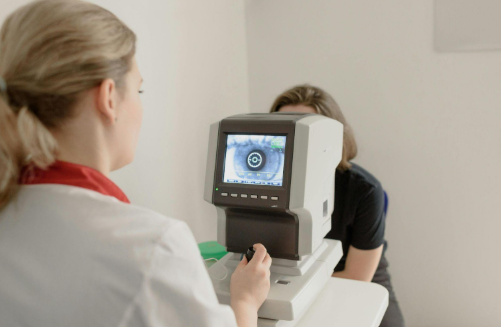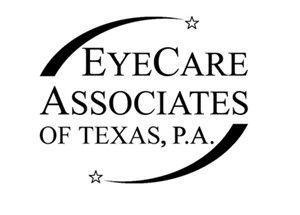Article
Optical Health and Nutrition: Foods that Support Eye Health
Maintaining good vision goes beyond regular eye check-ups and wearing the correct prescription glasses or contact lenses. One often overlooked aspect of optical health is diet, since certain nutrients play vital roles in maintaining eye health.
Here’s a detailed look at the relationship between nutrition and eye health to help you prevent or delay various eye conditions.
The Importance of Diet
The eyes are highly metabolically active organs that require a constant supply of nutrients to function properly. A deficiency in essential vitamins and minerals can lead to various problems, from dry eyes and cataracts to age-related macular degeneration (AMD). Understanding which foods contribute to optical health can help you make dietary choices that protect and enhance your vision.
Key Nutrients for Eye Health
Several key nutrients are particularly beneficial for maintaining healthy eyes:
- Vitamin A and Beta-Carotene: Vitamin A helps maintain good vision. It is a part of rhodopsin, an eye protein that allows you to see in low-light conditions. A deficiency in this vitamin can lead to night blindness and other vision problems.
- Lutein and Zeaxanthin: Both of these antioxidants are found in high concentrations in the macula, the part of the eye responsible for sharp, central vision. They work together to filter blue light so that your eyes are protected from oxidative stress.
- Vitamin C: This is a powerful antioxidant that helps protect the eyes from damage caused by free radicals. It also keeps the eye blood vessels healthy, reducing the risk of cataracts.
- Vitamin E: Vitamin E helps protect the cells of the eyes from damage caused by free radicals, which can lead to cataracts and AMD.
- Omega-3 Fatty Acids: Omega-3, found in high concentrations in fish, aids in retinal health and visual development. These fatty acids also help prevent dry eyes and may reduce the risk of AMD and glaucoma.
- Zinc: This mineral helps maintain the health of your retina. It also aids in vitamin A absorption and may help delay the progression of AMD.
Foods That Support Eye Health
Incorporating a variety of nutrient-rich foods into your diet can help support eye health. Here are some of the best foods to include in your diet:
- Carrots: Carrots are well known for their eye health benefits due to their high beta-carotene content. These are converted into vitamin A in the body, ensuring good vision.
- Leafy Greens: Spinach, kale, and other leafy veggies are packed with lutein and zeaxanthin. These foods are necessary to protect against harmful blue light and oxidative damage.
- Fish: Fatty fish like salmon, tuna, and sardines are rich in omega-3 fatty acids, which are crucial for retinal health and can help prevent dry eyes.
- Citrus Fruits: Oranges, grapefruits, lemons, and limes are high in vitamin C, which supports the health of blood vessels in the eyes and can reduce the risk of cataracts.
- Nuts and Seeds: Almonds, walnuts, and sunflower seeds are excellent sources of vitamin E and zinc, both of which help protect the eyes from oxidative damage.
- Eggs: As one of the best sources of lutein, zeaxanthin, vitamin E, and zinc, eggs can help protect the eyes from conditions like AMD and cataracts.
- Bell Peppers: Bell peppers are high in vitamin C, which helps protect the eyes from oxidative damage and supports the health of blood vessels.
- Sweet Potatoes: This root vegetable is rich in beta-carotene, which is converted into vitamin A in the body, essential for maintaining good vision.
- Broccoli: Broccoli contains a combination of vitamin C, beta-carotene, lutein, and zeaxanthin, making it an excellent food for eye health.
- Legumes: Beans, lentils, and chickpeas are good sources of zinc, which supports retinal health and helps delay the progression of AMD.
Integrating Eye-Healthy Foods into Your Diet
Here are some ways to add these foods to your daily diet:
Balanced Meals
Focus on building a balanced meal with a variety of nutrients. For example, a salad made with spinach, bell peppers, and a sprinkle of sunflower seeds can be a good breakfast option. To complete a well-rounded meal, pair it with a piece of salmon and a baked sweet potato.
Healthy Snacks
Choose snacks that are beneficial for your eyes. Carrot sticks, a handful of nuts, or citrus fruits make great snacks that support eye health. When you're on the go, pack snacks like nuts or trail mix that include omega-3s, zinc, and vitamin E. Dried fruits like apricots or raisins can also be great options.
Cooking Methods
Opt for cooking methods that preserve the nutrients in your food. Steaming vegetables, for instance, can help retain their vitamin content better than boiling. Deep frying, on the other hand, can strip your foods of their nutrients.
Smoothies
Smoothies are a convenient way to pack multiple eye-healthy nutrients into one meal. Blend leafy greens, citrus fruits, and almond milk for a nutritious drink. While smoothies are great, adding sweeteners or ingredients like ice cream can detract from their nutritional value.
Variety
Eating a wide variety of foods ensures that you get a broad range of nutrients. Try to include different fruits, vegetables, and protein sources in your diet to cover all your nutritional bases. This can also help you keep things interesting and avoid boredom with your meals.
Supplements
If you find it challenging to get enough of certain nutrients through your diet alone, consider taking supplements. Always consult your healthcare professional before taking any supplements, as they can interact with medications or have side effects.
Additional Tips
In addition to a nutrient-rich diet, here are other steps you can take to maintain good eye health:
- Regular Eye Exams: Check-ups help detect potential issues early and make sure your eyes are healthy. A reputed ophthalmologist can provide tailored advice based on your needs.
- Protect Your Eyes: Wearing sunglasses that block out 100% of UV rays can protect your eyes from sun damage. You can also use protective eyewear while working with hazardous materials or participating in sports, which can prevent injuries.
- Limit Screen Time: Since prolonged screen time can strain your eyes, it’s ideal to follow the 20-20-20 rule: take a 20-second break every 20 minutes to look at something 20 feet away. This can help reduce eye strain.
- Quit Smoking: Smoking is linked to an increased risk of developing eye diseases like AMD and cataracts. Quitting smoking can improve your overall health and significantly reduce your risk of eye-related problems.
For more personalized eye care advice, contact our team at
Eyecare Associates of Texas, P.A. Our experienced doctors are here to help you achieve optimal eye health and comfort. If you’re in Cedar Hill or Grand Prairie,
visit us or call
(972) 779-6077 to schedule your next eye exam and discuss any concerns.





